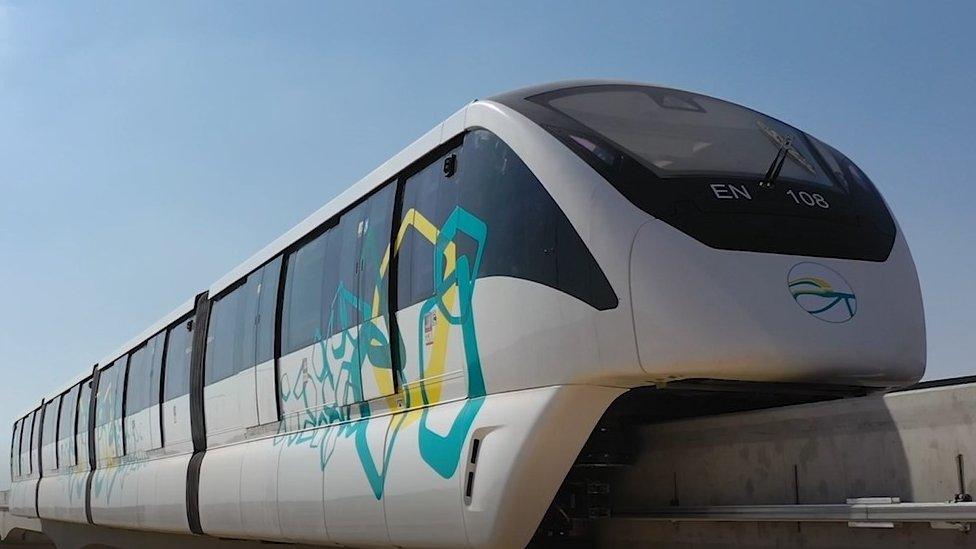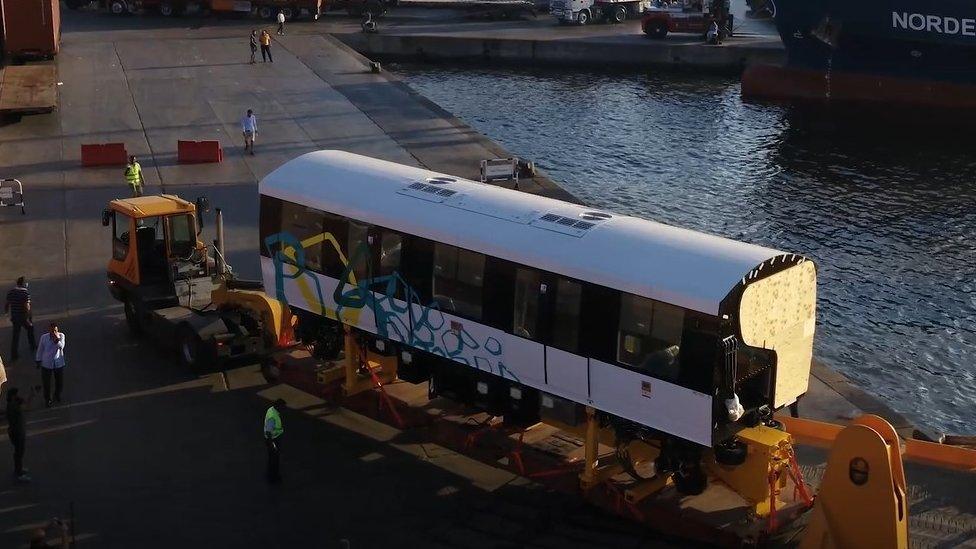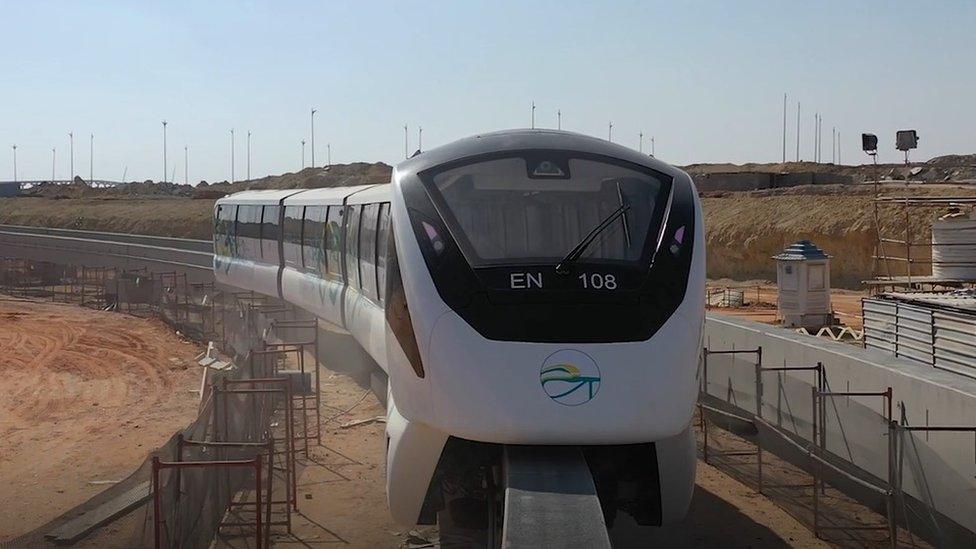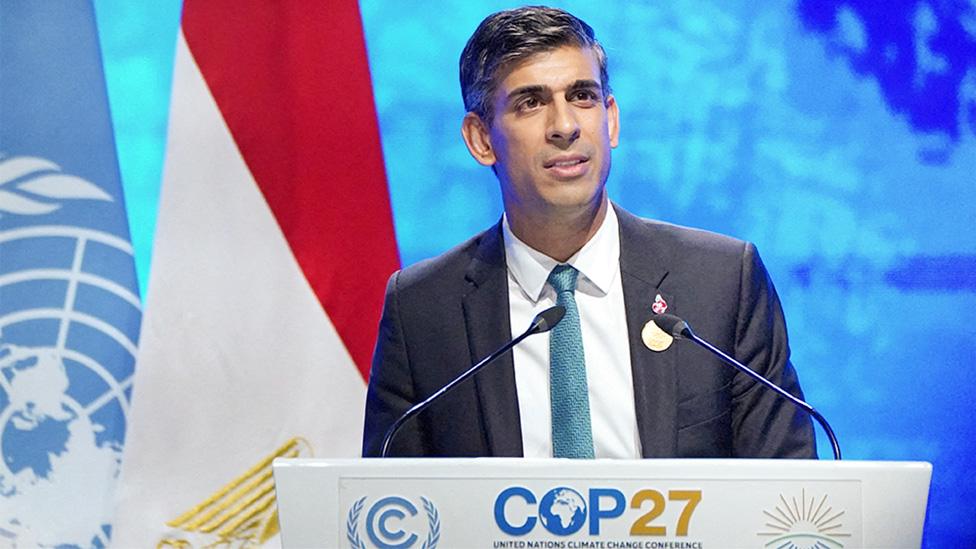UK firm Alstom builds monorail for COP27 host country Egypt
- Published

Alstom secured the contract two years ago
A UK company that has been contracted to build monorails for Cairo has said it has completed its first units.
Derby-based Alstom has finished its first 12 monorails in a move it hopes will cut emissions in Egypt, which is hosting the COP27 climate summit.
The company is part of a consortium delivering a €2.7bn (£2.3bn) contract to construct and run the monorail.
Alstom's Derby works site managing director Mike Hulme said: "It's a fantastic project."

The first monorail units have been transported to Egypt
Mr Hulme said: "We secured the contract as part of a broader project to deliver new monorail systems in Egypt two years ago.
"We've actually been in the manufacturing stage for the past 18 months.
"It's one of the key projects we are delivering out of Derby."
'Technology for the future'
Mr Hulme said the firm had been contracted to build 70 four-car monorail trains.
The first units have been delivered to Cairo, with the first due to be tested by Egypt's Ministry of Transport this week.

Two monorail lines are being constructed in Egypt
"It's certainly getting a lot of focus, particularly in the developing world. It's a high-mass transport system for all cities," Mr Hulme said.
"I think that's why it's gained the approval in Cairo. It's very green technology.
"It's something to be really proud of for the UK in terms of our expert capability.
"In all, it's exciting technology for the future."
Cairo's monorail project includes one 57km (35 mile) line, to serve as a connection with Egypt's new administrative capital and a second 42km (26 mile) line connecting to Giza.
Alstom said its monorails would be fully automated and driverless and would have the capacity to transport 45,000 passengers per hour in each direction when complete.
Mr Hulme said that because monorails run above the ground, they were cheaper and lower risk to install in cities than a conventional tram system.
In 2019, Derby City Council's leader Chris Poulter suggested an idea for a monorail in the city to connect it to a possible HS2 hub.
Mr Hulme said he hoped a UK city would adopt the technology in the future.
"The UK would be the ideal place to continue this journey. All the engineering for this project is based in Derby," he said.
"I'd like to think in the future we could secure this technology for some of our larger cities."

Follow BBC East Midlands on Facebook, external, on Twitter, external, or on Instagram, external. Send your story ideas to eastmidsnews@bbc.co.uk, external.
Related topics
- Published8 November 2022
